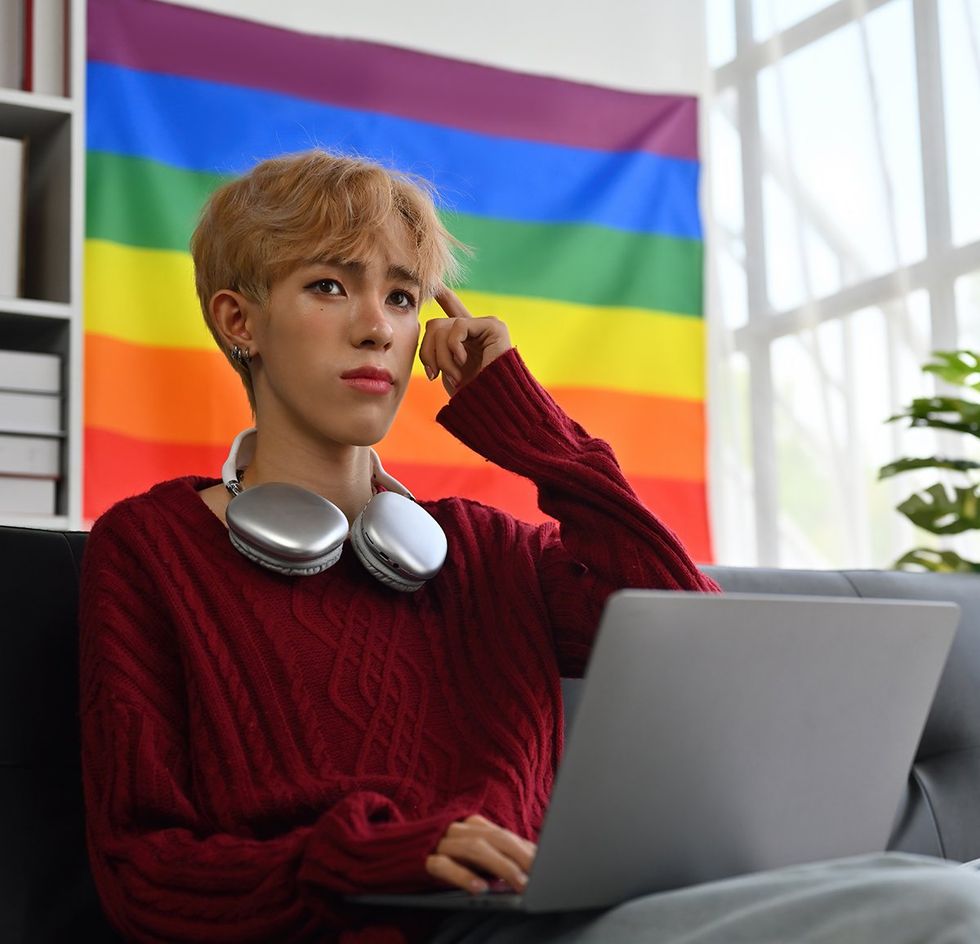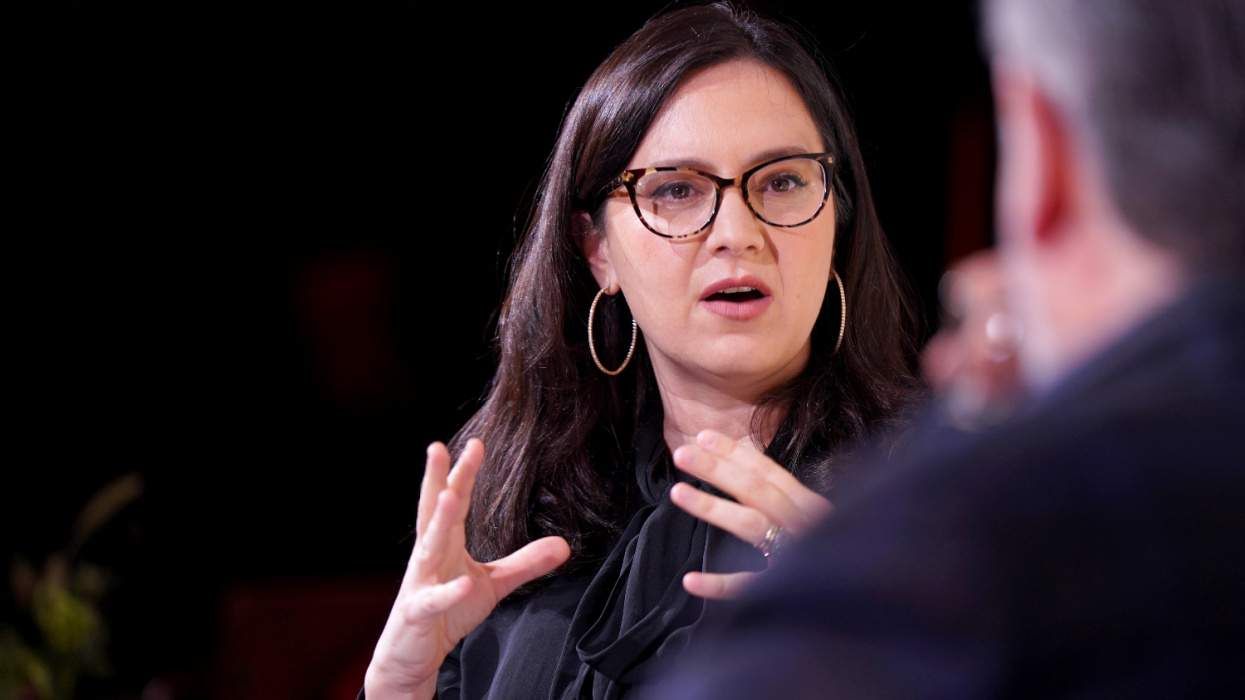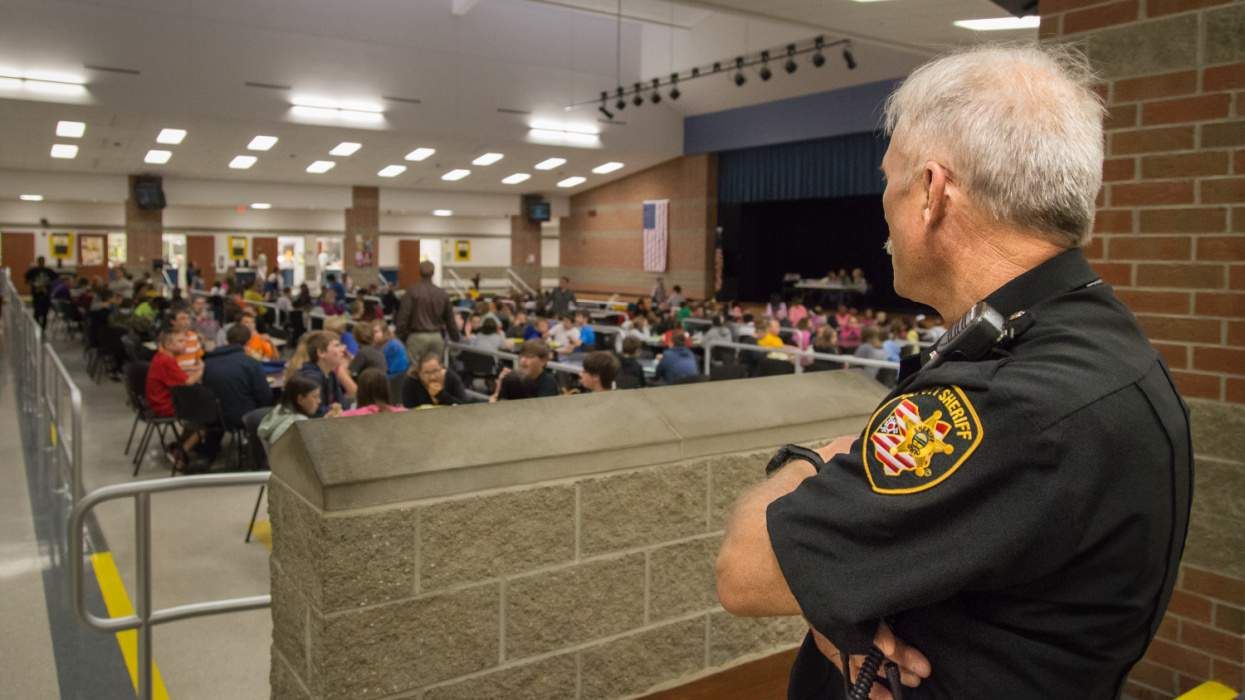In the days following the 2024 presidential election, many LGBTQ+ youth felt frustrated, angry, and frightened about the future. As a member of the community myself and a mental health provider with pre-existing concerns about rising mental health challenges in LGBTQ+ communities, I feel similarly concerned.
The Trevor Project, a nonprofit that provides crisis intervention and suicide services for LGBTQ+ young people, reported that its crisis calls increased 700% around the election. Not surprisingly, nearly 90% of LGBTQ+ youth felt that politics had an impact on their mental health.
Mental health solutions built on culturally inclusive care are more important than ever. The Trevor Project and similar organizations provide valuable, life-saving crisis support services vital to the community, particularly in times of uncertainty. But what if we could reduce the chances of reaching a crisis and alleviate these stretched services? Early intervention and prevention are essential for community health and are key to lowering crises down the road.
We’re experiencing an increasing recognition of the significant barriers marginalized communities face in accessing mental healthcare, underscoring the need for more inclusive and equitable services. For example, racial and ethnic minority groups are 20-50% less likely to seek behavioral healthcare and 40-80% more likely to leave treatment early. According to a study in JAMA Pediatrics, Black and Hispanic youth are half as likely as their white counterparts to receive behavioral healthcare. In schools, the National Association of School Psychologists recommends one psychologist for every 500 students. Still, in under-resourced areas, the ratio often rises to 1 per 2,000 students, leaving many young people without critical support.
California has long been a leader in social justice and healthcare equity initiatives, including a groundbreaking digital behavioral health initiative that addresses this gap in care for millions of young people, teens, children, and families.
California made history one year ago when 13 million children, teens, and young adults (from birth to 25 years old) received free access to two digital mental health support services: Soluna and BrightLife Kids. Part of California Gov. Gavin Newsom’s historic Master Plan for Kids’ Mental Health and the Children and Youth Behavioral Health Initiative, the program helps ensure equity of access for marginalized communities who face disproportionate barriers to care, including LGBTQ+ youth.
Integrating culturally and linguistically appropriate support while addressing the digital divide, socioeconomic challenges, and geographical barriers is essential for improving access to care. Customizing content to reflect the diverse experiences and needs of the people using these tools is crucial to ensure inclusive and effective solutions. We’ve developed culturally sensitive mental health tools to meet the needs of young people, including LGBTQ+ teens and youth.

Accurate equity in mental healthcare recognizes that people have widely differing needs and circumstances, ensuring everyone receives the tailored support and resources they need to achieve comparable outcomes, regardless of their circumstances or challenges. Truly equitable mental healthcare addresses diverse factors affecting individuals’ mental health and access to care.
For many LGBTQ+ youth, they may face socioeconomic, linguistic, or geographical barriers to care, in addition to often feeling “othered” already. For example, young people in rural areas don’t have the same access to behavioral healthcare as people in urban areas. Simply getting to a brick-and-mortar location for care presents practical barriers. But for a member of the LGBTQ+ community seeking services associated with their identity, there may be an additional layer of stigma, particularly if you’re the only LGBTQ+ person in your community. These young people may feel unsafe seeking care or asking questions about care.
But it’s not just rural communities. Take South Central Los Angeles, a historically underserved community that has both practical challenges related to travel and access, as well as increased barriers to care as it relates to stigma or fear in the queer community.
If it’s too difficult to get young people to the appropriate care, we should bring it to them. In the U.S., 95% of teens have a smartphone. Let’s meet them where they are.
A safe, confidential, stigma-free digital tool allows young people who may not otherwise feel safe accessing care to receive the care they need in the palm of their hands. For many LGBTQ+ youth who don’t feel safe or supported in their communities, this becomes a powerful tool. The privacy allows them to have a stress-free experience seeking care and having a private conversation with a certified coach without worrying about an insurance bill landing in their mailbox.
Perhaps most importantly, these digital tools allow for early support long before a young person needs access to crisis services. There’s no reason to wait for the proverbial fire to rescue young people. Let’s evolve our fire prevention strategy instead. Let’s give young people the tools they need to build psychological flexibility, autonomy, and self-efficacy.
This starts with the way digital tools are designed. We know that a one-size-fits-all approach doesn’t work in behavioral healthcare. Designing these platforms with input from the diverse communities they serve is critical. Content has to be not only accessible but relevant to different audiences with varying abilities, backgrounds, and lived experiences. Diversity of thought and diversity of content create a more functional, modern, and effective tool.
Let’s use a young person’s coming-out journey as an example. This is widely dependent on their cultural context. In this case, a one-size-fits-all approach isn’t just less practical; it could be dangerous. Culture matters. Lived experience matters.
LGBTQ+ youth deserve access to quality behavioral healthcare in a manner that meets them where they are, confidentially, safely, and without fear or stigma. While we love the work The Trevor Project and other crisis services are providing for our community, let’s take some of the burden off them. As a queer, nonbinary person and mental healthcare provider, I have the privilege of seeing what a difference services like Soluna can make in the lives of young people.
What if every LGBTQ+ youth had access to free support to help navigate life’s ups and downs? Can you imagine how different your own coming-of-age story would have been written had you had access to free, safe, confidential behavioral health support?

At Soluna, we’re proud of how we built our behavioral health platform—by young people from California, for ALL young people in California. But this is only the beginning. Through innovative public-private partnerships like in California, we can redefine behavioral healthcare for generations. Early, equitable access to behavioral healthcare tools can transform young people’s lives. Now is the time for other states to join what we’ve started in California.
Dr. Tully, Ph.D., is a licensed clinical psychologist and neuroscientist focused on scalable technologies and public policy to create universal access to high-quality, inclusive mental health support for young people. Dr. Tully's ultimate goal is to secure universal access to prevention and early intervention mental health services for all youth, regardless of their ability to pay, cultural or linguistic background, disability status, or geographical location. Dr. Tully is VP of Partnerships at Kooth, and holds an adjunct faculty appointment at the University of California, Davis Department of Psychiatry.
Voices is dedicated to featuring a wide range of inspiring personal stories and impactful opinions from the LGBTQ+ and Allied community. Visit advocate.com/submit to learn more about submission guidelines. We welcome your thoughts and feedback on any of our stories. Email us at voices@equalpride.com. Views expressed in Voices stories are those of the guest writers, columnists and editors, and do not directly represent the views of The Advocate or our parent company, equalpride.















